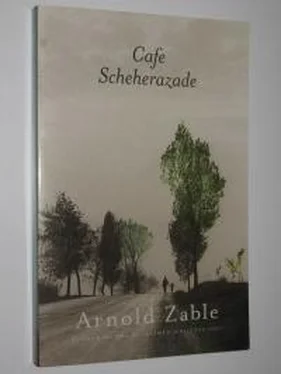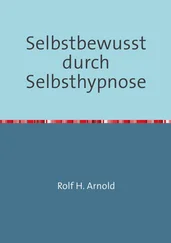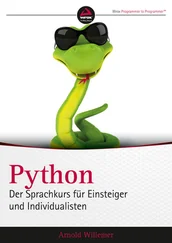Arnold Zable - Cafe Scheherazade
Здесь есть возможность читать онлайн «Arnold Zable - Cafe Scheherazade» весь текст электронной книги совершенно бесплатно (целиком полную версию без сокращений). В некоторых случаях можно слушать аудио, скачать через торрент в формате fb2 и присутствует краткое содержание. Город: Melbourne, Год выпуска: 2001, Издательство: Text Publishing Company, Жанр: Проза, на английском языке. Описание произведения, (предисловие) а так же отзывы посетителей доступны на портале библиотеки ЛибКат.
- Название:Cafe Scheherazade
- Автор:
- Издательство:Text Publishing Company
- Жанр:
- Год:2001
- Город:Melbourne
- ISBN:нет данных
- Рейтинг книги:4 / 5. Голосов: 1
-
Избранное:Добавить в избранное
- Отзывы:
-
Ваша оценка:
- 80
- 1
- 2
- 3
- 4
- 5
Cafe Scheherazade: краткое содержание, описание и аннотация
Предлагаем к чтению аннотацию, описание, краткое содержание или предисловие (зависит от того, что написал сам автор книги «Cafe Scheherazade»). Если вы не нашли необходимую информацию о книге — напишите в комментариях, мы постараемся отыскать её.
Cafe Scheherazade — читать онлайн бесплатно полную книгу (весь текст) целиком
Ниже представлен текст книги, разбитый по страницам. Система сохранения места последней прочитанной страницы, позволяет с удобством читать онлайн бесплатно книгу «Cafe Scheherazade», без необходимости каждый раз заново искать на чём Вы остановились. Поставьте закладку, и сможете в любой момент перейти на страницу, на которой закончили чтение.
Интервал:
Закладка:
He located his mother and two elderly friends in the attic of a three-storey tenement. They had not eaten for a week.
Again Etta refused to leave for Resze. She preferred to move to the first ghetto, where she could join her friends and comrades.
Avram guided her down the stairs, lifted her onto 159 the wagon and, with the same audacity with which he had entered, he escorted her out into the open streets, and back through the gates of the first ghetto.
Avram returned to Resze by nightfall. He brought back letters and news to fellow workers who still had family in the city. Reports of mass killings continued to reach them day after day. Within weeks Avram embarked on a second peat run. As he drove towards the ghetto entrance he saw a crowd of inmates being led out.
Among them walked his mother.
Avram drove the horse into the crowd. He beat back the guards, and dragged his mother onto the wagon. Passers-by could not believe what was happening in front of their eyes. It was his audacity that enabled him to get away with it. He drove through the city in a trance. His life had become a trance. And it is in a trance that he continues the story, at a table in the back room of Scheherazade.
Avram returned to Resze. Etta was reunited with her daughter and grandchild. It did not last long, this sojourn in the forests.
The factory manager had received news of an impending raid. The
Nazis had learnt that Jews were hiding in the peat works.
The Zeleznikows made their way back to the city. They stole into the first ghetto. Only those who possessed a yellow work pass could remain. The others hid. If discovered they would be rounded up and led to their deaths. Only slaves were permitted to exist.
160
Uri obtained work in the ghetto kitchen. This entitled him to register Basia and Shmulek. On Yom Kippur, the Day of Atonement, 1941, those who did not possess yellow passes were ordered to assemble in the streets. Etta was smuggled into the kitchen where her son-in-law worked. Avram clambered onto the roof and hid in an attic chimney. An elderly Jew tried to follow him. He was spotted by a Lithuanian policeman. Both Avram and the elderly Jew were dragged from the chimney, and driven down several flights of stairs to the street.
Avram was now covered in blood and soot. He tried to disappear into a crowd of workers who had yellow passes. The chief of the
Jewish ghetto police, Jacob Gens, dragged him out and handed him over to German officers. Avram was among the thousands who were herded into the second ghetto.
The centuries-old Jewish quarters of Vilna were in ruins. The renowned synagogue had been reduced to rubble. The second ghetto had been liquidated. Shredded bedding and clothes, photo albums and dismembered dolls, charred shards of glass, lay scattered in smouldering homes. The building which had housed Wolfke's was one of the many that were gutted. The courtyard of the Sage of Vilna was no more. And those assembled in its ruins knew, with helpless certainty, that before them lay one final journey, to the killing fields of Ponary.
Avram seized his last chance. A pre-war friend, Dr Anatolski, and a group of nurses, had been allowed into the second ghetto to tend to the wounded. Avram appealed to him for help. Anatolski allowed Avram to crouch beneath a stretcher.
161
Barely concealed, Avram walked, like a dog, back into the first ghetto, while those who were left behind perished, just hours later, in what was to become known as the `Yellow Pass Aktions`.
Again I observe Avram's hands. They possess a language of their own. He inscribes ever-widening circles. The circles indicate a vastness, an incomprehension. His clenched fists are clenched emotions. They precede the most searing of memories. A story almost impossible to tell. A story we wish to avoid, both teller and listener.
There was something else about that night of the Yellow Pass
Aktions, on Yom Kippur 1941. The inmates had been driven to the ghetto gates. Alsatians howled and tore at their feet. SS men and camp guards wielded rifle butts and bayonets. Gestapo officers sat at wooden tables where they processed every man, woman and child.
Each adult with work passes was to be allowed three names on their yellow pass: one member of the opposite sex, and two children. Any children in excess would be taken. The decision had to be made within seconds. Those with more than two children had to choose who they would keep, who they would abandon. If no choice were made, they would all perish in the forests of Ponary.
Avram heard the screams from his place of hiding. Tears come to his eyes in the telling. Tears come to my eyes in the listening.
We are descending, Avram and I, in the back room of the cafe. We are moving together. Step by step. Each step is
162 another realm. A step closer to an unfathomable darkness.
Avram clenches his fists tighter. The chairs seem to career across the polished floors. The cafe walls close in around us.
Those seated at nearby tables evaporate into ghosts. Neon-lit
Acland Street recedes. The city we inhabit whirls about us. And again we are elsewhere, by the gates of the ghetto, in the
Jerusalem of eastern Europe. Children are being wrenched from their mothers. From their trusted fathers.
"Many parents were driven to insanity that night," Avram whispers. "We thought we were immune to tragedy. We were prepared for the worst. But not for this. It was impossible to understand.
It can never be understood. Those parents who survived this
Aktion would never forgive themselves.
"And the worst thing," adds Avram, "was that the perpetrators of these crimes seemed to enjoy it."
They can come in any season. Mostly they appear in early spring, days of gale-force winds. They rise in the south, partnered by clouds borne upon sudden gusts. The bay bursts from its confines.
The spray whips the eyes. The city vanishes under low-flung skies. High seas lash the pien Boats in the marina tear at their chains. The palms on the foreshore sway, as if about to snap.
It is invigorating, this southern rage. It clears my mind. It penetrates my bones. My face feels cold and alive, my eyes clear and alert. I scan the unkempt sea, the cloud-black skies. I notice, 163 for the first time, that there are trees, permanently bent away from the sea, beaten back, over the years, by countless southem storms. Crows and gulls spiral against the wind. Squalls hurl water onto the foreshore. The beaches are strewn with kelp flung against the retaining walls.
Never before have I so enjoyed the ferocity of a storm. It is a relief to be outside, to cling to the bay, and wander the streets. And it is a relief to be free for a while of that storydrenched cafe so burdened by the past.
But now that we have begun, we must see it through. I return, and
Avram resumes his tale. Fifteen thousand inmates remain in the first ghetto. The Third Reich is in need of slaves. Avram works in an electricity plant. He leaves the ghetto at dawn, and returns from the factory at night.
The incarcerated slaves regroup. They set up schools, a kindergarten, a wall bulletin, a bookstore. A resistance movement is formed in the early days of 1942. Yitzkhak Wittenberg is elected leaden The two battalions are broken down into chapters.
Each chapter is divided into cells. Avram becomes chairman of the ghetto youth club. The club produces exhibitions and plays. They smuggle in weapons and secretly train.
Houses of worship are relocated underground. Avram's sister, Basia, teaches music to ghetto children. She is one of many inmates who continue to give of their hearts and skills. Cabarets and choirs, a theatre, an orchestra, soften the despair.
164 Writers pour their suffering into laments and dirges.
Haunting melodies rise from the ashes. A poet roams the ghetto alleys in a vain search for his vanished lover:
Читать дальшеИнтервал:
Закладка:
Похожие книги на «Cafe Scheherazade»
Представляем Вашему вниманию похожие книги на «Cafe Scheherazade» списком для выбора. Мы отобрали схожую по названию и смыслу литературу в надежде предоставить читателям больше вариантов отыскать новые, интересные, ещё непрочитанные произведения.
Обсуждение, отзывы о книге «Cafe Scheherazade» и просто собственные мнения читателей. Оставьте ваши комментарии, напишите, что Вы думаете о произведении, его смысле или главных героях. Укажите что конкретно понравилось, а что нет, и почему Вы так считаете.












